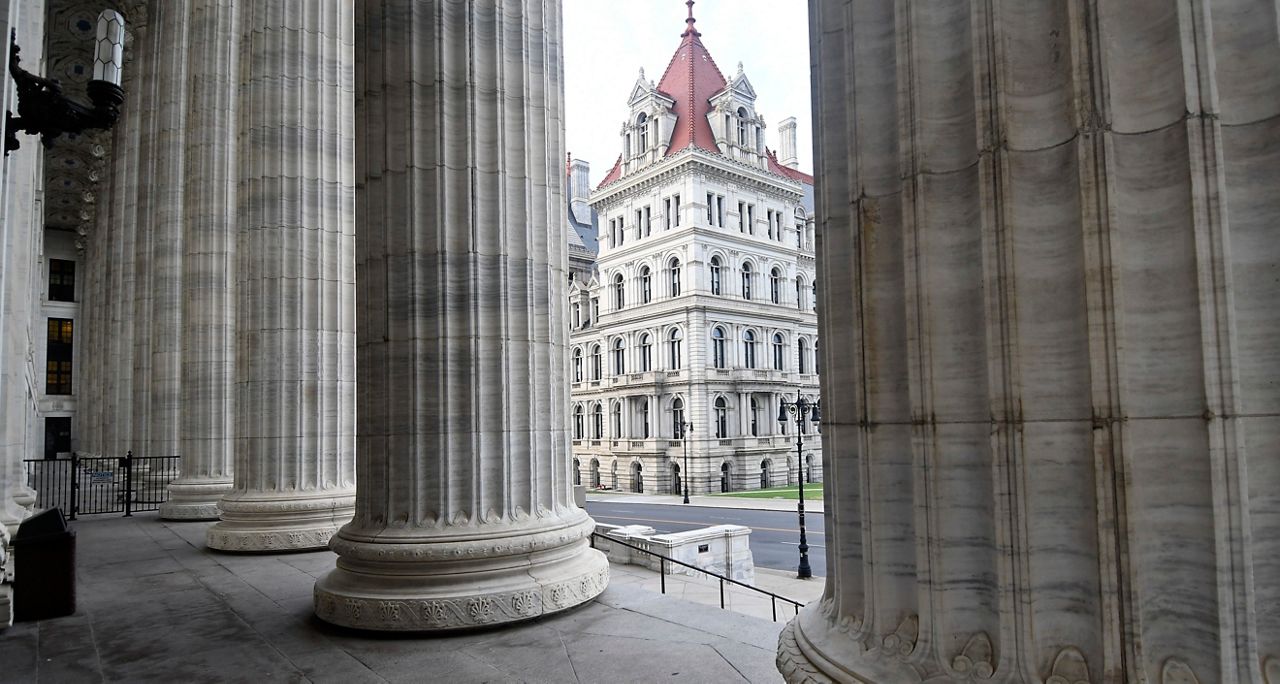State Education Department officials late Monday said they were troubled by a potential budget deal to change department regulations for religious and nonpublic schools after weeks of closed-door debate.
In a victory for the Hasidic Jewish community, sources and lawmakers said the budget will roll back the state Education Department's stricter substantial equivalency standards for nonpublic schools the Board of Regents adopted in 2022.
The language, obtained by Spectrum News 1, will allow schools to phase in meeting the criteria through the 2032-33 academic year, and weakens the department's requirements for nonpublic schools to prove they provide an education that's substantially equivalent to a public district.
Assembly Speaker Carl Heastie, who has led the pushing for the changes, defended the decision Monday.
"It's not a loosening," Heastie told reporters in Albany. "We've used a lot of the regulations that the state Board of Regents put in. It's just allowing yeshivas and schools to get themselves in compliance and explores the multiple pathways that came from SED."
The Hasidic Jewish community represents a powerful voting bloc that could make a difference in upcoming elections, like the upcoming New York City mayoral race or next year's gubernatorial election.
SED offers nonpublic schools seven pathways to demonstrate compliance. The proposal also changes proficiency standards to accept different standardized tests, which will make it easier for schools to avoid substantial equivalency review.
State Education Department Commissioner Betty Rosa and Board of Regents Chancellor Lester Young spoke against the proposal Monday during a Board of Regents meeting, and said the changes would weaken the department guidelines for nonpublic schools.
"That's their opinion," Heastie said Monday afternoon when asked for a response.
SED leaders have been outspoken against the changes for weeks, and have asked the Legislature to stay out of education policy.
The speaker has refused to publicly say his main reason for pushing for the rollback.
An SED spokesperson on Monday night said the proposal is troubling.
"We are aware of reports that an agreement on Substantial Equivalency may be included in the state budget negotiations," SED spokesperson JP O'Hare said in a statement. "While we cannot assess the specifics without having seen the bill text, we remain deeply concerned that the fundamental right to a high-quality education for every child could be compromised as part of political bargaining. Given that implementing the Substantial Equivalency law carries no fiscal impact, it is troubling that such a critical issue might be decided through the budget process rather than through transparent, public debate. This is not policymaking. This is interference."
The Education Department was expected to release a report at the end of June to announce the schools that have failed to meet the stricter guidelines and risk losing government funding. But the expected budget changes will likely require the reports to be redone and push back their release.
Young Advocates For Fair Education has led the loudest fight against weakening the state's substantial equivalency guidelines — arguing it's not the Legislature's place to hinder education policy set by the Board of Regents.
The group on Monday said the proposal will be detrimental to the quality of education in the state by delaying real enforcement for several years and giving schools the opportunity to use low-bar tests as measurements of success.
“The new budget bill doesn’t just weaken existing educational standards — it guts them," YAFFED Executive Director Adina Mermelstein Konikoff said in a statement. "It’s the worst proposal yet, and lawmakers who claim that this bill does not undermine the enforcement of the substantial equivalent regulations are being disingenuous. This language strips parents of their right to demand a basic education for their children, gives schools the power to choose their own oversight, allows them to use the lowest-bar tests to declare success, and delays real enforcement for nearly a decade. It even enables some schools to avoid teaching core subjects like civics and history altogether.
"Today’s backroom deal is a shameful betrayal of our state’s most vulnerable students," Mermelstein Konikoff added. "We will continue to fight until substantial equivalency is not just a promise on paper, but a reality in every classroom in New York.”
Some lawmakers disagree with YAFFED's assessment of the proposal and argue the changes will give nonpublic schools more time to comply and those districts a chance to make the needed corrections to stay open.
"It's worth underscoring how modest what we're talking about is," one lawmaker in favor of the changes said Monday.
They stressed that parents will still have the ability to file complaints, schools cannot create their own accredidation agencies and the Education Department maintains its oversight of the process.
Lawmakers are split on the issue, but several declined to comment until budget language is printed. A representative with the yeshiva community also declined to comment on the proposal until a bill is introduced.
This issue has come up during budget talks for the last few years, but has never made it into the spending plan. Gov. Kathy Hochul has refused to speak out against playing politics with education law as she focuses on next year's re-election bid and ahead of the upcoming mayoral race.
The education department's regulations have been upheld in court multiple times over several years.


